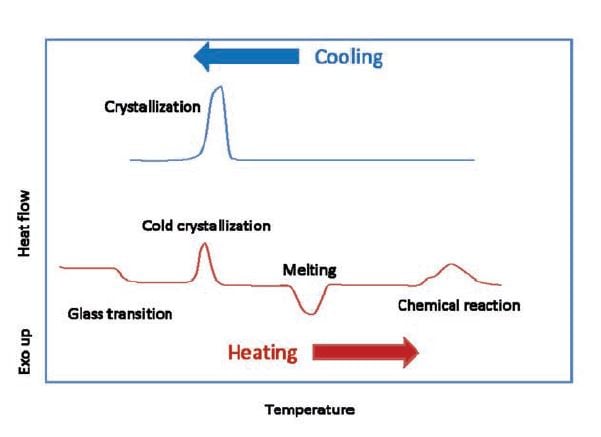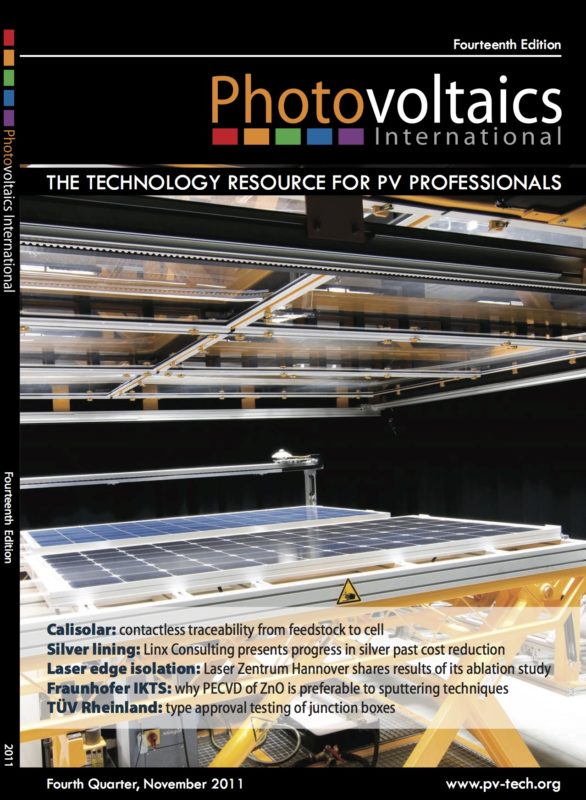By Manuel Hidalgo; Franck Medlege; Marion Vite; Catherine Corfias-Zuccalli; Philippe Voarino; Juan González-León
This paper presents a new differential scanning calorimetry (DSC) method that allows the determination of the degree, or level, of crosslinking of ethylene-vinyl acetate (EVA) copolymers, including EVA films used as encapsulants for photovoltaic (PV) applications. This method can also determine additional characteristics of EVA, such as its weight per cent (wt %) vinyl acetate (VA) content and its fluidity. The paper describes the procedure and its application to EVA film samples laminated at 145°C, for different lengths of time in an industrial-type laminator for PV modules, as well as to EVA uncrosslinked samples of different composition and fluidity. The scope of the method compared to other characterization methods for the degree of crosslinking of EVA is discussed. An experimental
comparison is also made to rheological and gel content methods.



